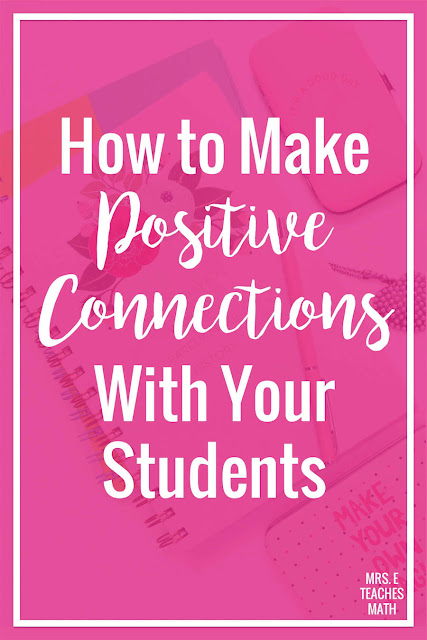There is also no doubt that having healthy, connected relationships with our students is crucial for student achievement, wellbeing, and a non-toxic classroom environment. If you teach for any amount of time you will start to notice children changing - due to changes in society, family, community, and social issues change the stressors students (of all ages) are dealing with. I'm sure OUR teachers went through the same thing in the course of their careers! What is timeless is the need for students to have someone in their lives with whom they can connect safely on a personal level, and sometimes that person will be you. Here are a few ideas for connecting positively with all the students in your class.
Understand the differences between authoritarian and authoritative.
Given that we all have different personalities and interaction styles, it makes sense that managing a classroom will not be easy for everyone. Some respond to difficulties in this area by trying to garner respect by becoming overly authoritarian. Understand that authoritarian management styles are a power trip that students can see right through. You can be authoritative with your students, running a "tight ship", while fostering positive interpersonal relationships. Students will respect you and perceive you as a fair and trustworthy person.Develop and project confidence in yourself, even if you have to fake it till you make it.
A sense of confidence is the foundation upon which a healthy classroom environment is built. You have to be able to face your class with a sense of holding boundaries, and their environment, in a safe way. This requires that you feel confident in yourself and your abilities as a teacher and a person. Just as kids can see through an authoritarian persona, they can smell if you are insecure or insincere in your efforts. Work hard to develop and project an air of competence regardless of your personality or interaction style.Also Read - Bellwork Keeps Me Sane
Humanize yourself to your classes.
Some students come to school with an unbelievable amount of baggage. Some have had such terrible life experiences (some while at school) that they view teachers as a sort of removed alien life force to tolerate (or not). Sharing your own experiences as a student and as a person can go a long way toward helping them realize you are an open, available resource that can be trusted. I struggled with algebra. I mean, I was the girl crying at the kitchen table over homework. When my algebra students struggle, I tell them about BARELY making a C in algebra in high school.Consider adding time for a personal connection with each student into your routine.
Let's face it, some things are just not going to get done unless you etch it in stone. Adding time for personal connection is one way to make sure these important relationships get fostered. Do you want to greet each student and make eye contact as they come into class? Do you want to connect with them while taking attendance? Do you want to hold regular class meetings, open door "office hours", or have a "lunch bunch" a couple of times a week? In my classroom, lunch time is usually a time that I allow students to hang out in my classroom (as long as they don't make a mess). Every year, there is a (different) small group that really appreciates the safe space away from their peers. There are a variety of ways you can incorporate these interactions into your routine until they become second nature. You will be surprised how much your students will look forward to these special experiences!
Put extra effort into reaching your "difficult" students.
I have talked before about the necessity for teachers to have a solid hold of their own emotions and reactions to challenging circumstances. This is another situation where you have an opportunity to prevent your own reactive response to difficult students.
All behavior serves a purpose. Some students have already been beaten down by life. Some have learned that negative attention is the only kind of attention they can get. If you can respond in difficult interactions with warmth and equanimity, you are teaching students that you are not going to jump into their emotional whirlpool, and you also aren't going to give up on them. Make an effort to really talk to and listen to these students. Maintain an overall positive ratio of interactions with them, while holding them accountable. Make them feel seen with targeted praise when you see them doing the right thing.
Every student in your classes needs to feel they have a positive connection with you. There are a variety of ways you can go about incorporating intentional connection into your routines. These efforts will pay off in an improved classroom environment, improved student mental and emotional health, easier classroom management and positive behavior, AND positive academic growth. You have the opportunity to be a powerful positive presence in your student's lives, so spend some time reflecting on your intentions for your relationships with all of your students.





